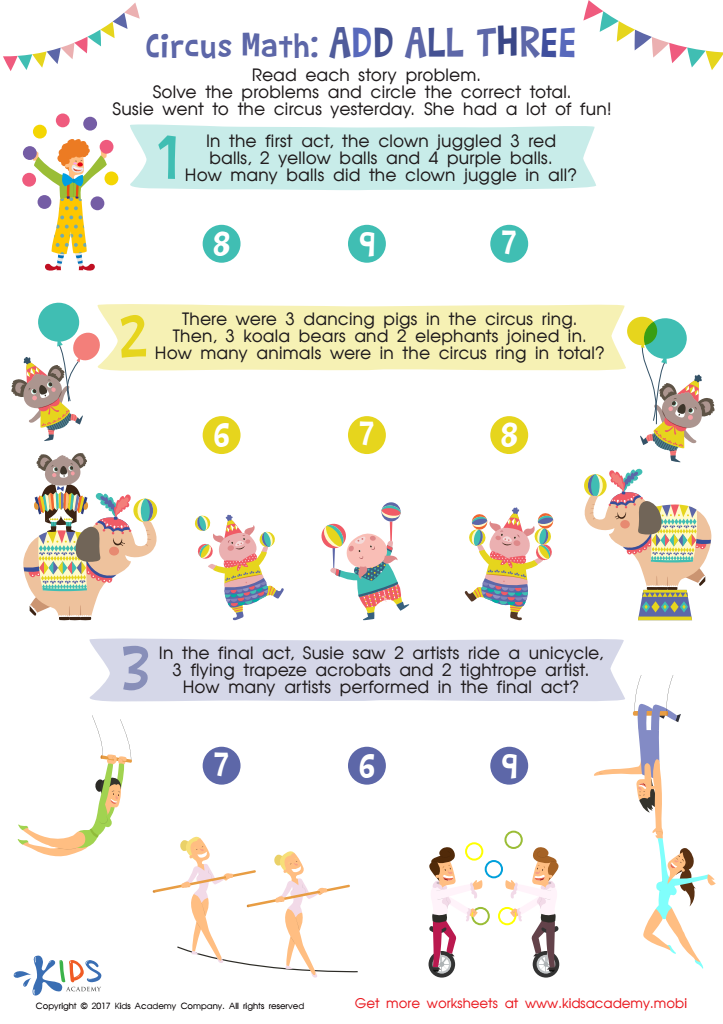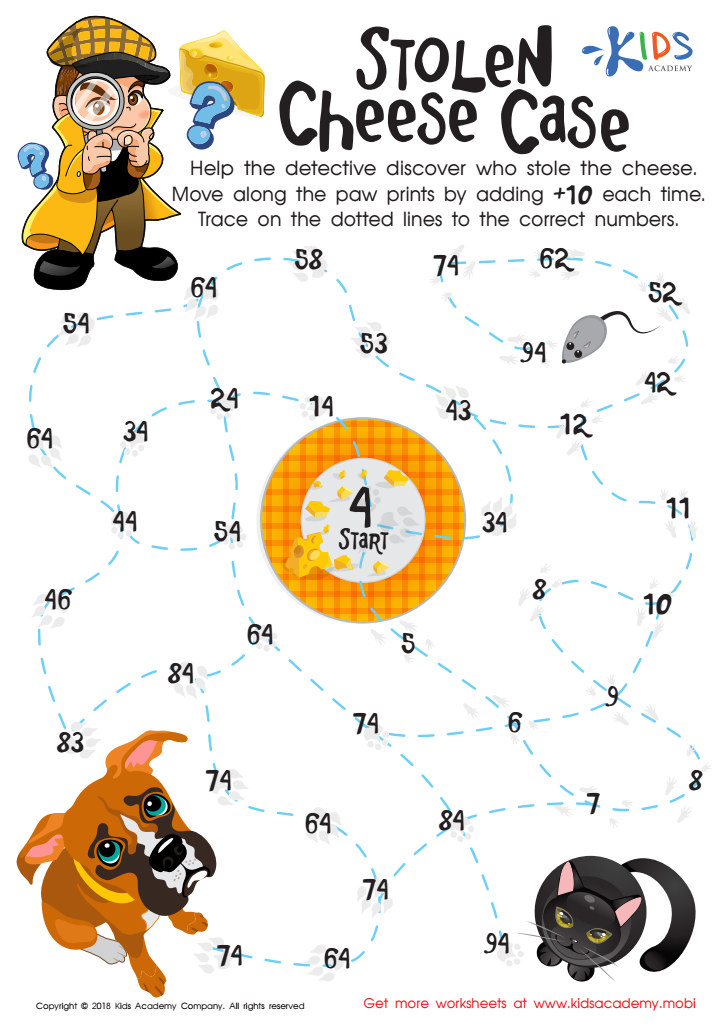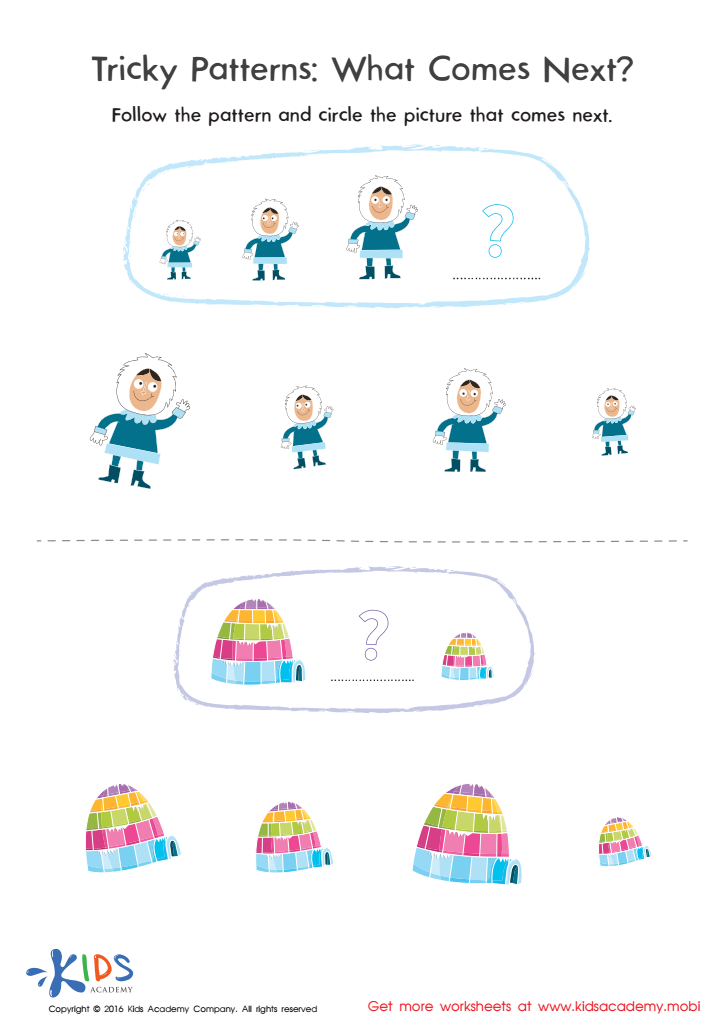Logic development Worksheets for Ages 6-9
4 filtered results
-
From - To
Enhance your child's critical thinking skills with our expertly designed Logic Development Worksheets for Ages 6-9 at Kids Academy. Our collection offers a variety of engaging exercises that challenge young minds to recognize patterns, solve puzzles, and develop problem-solving strategies. Curated by educators, these worksheets promote cognitive growth and strategic thinking through fun, interactive activities. Whether your child is deciphering mazes or sorting shapes, they'll build a strong foundation for future learning. Perfect for classroom use or home practice, our worksheets make learning enjoyable and effective, nurturing smarter learners one challenge at a time. Empower your child’s logical reasoning today!


Circus Math Printable


Stolen Cheese Case Maze Worksheet


Tricky Patterns Size Worksheet
Logic development for children aged 6-9 is a critical component of their cognitive growth and overall academic success. At this stage, kids begin to transition from simple associative thinking to more complex reasoning skills, which are foundational for problem-solving and decision-making. Parents and teachers should prioritize logic development because it enhances a child's ability to understand patterns, sequences, and relationships—skills essential in subjects like mathematics and science.
Moreover, logic helps in improving reading comprehension and critical thinking. For instance, understanding cause-effect relationships in stories or deducing the main idea from a passage relies heavily on logical thinking. These skills are not confined to academics; they also shape a child's ability to navigate social situations, manage conflicts, and make informed decisions.
Encouraging logical thinking from an early age through games, puzzles, and guided questioning boosts confidence and prepares children for future challenges. It also fosters creativity, as children learn to think outside the box and explore multiple solutions to a problem. By investing in the development of these skills, parents and teachers lay the groundwork for children to become independent, strategic thinkers and lifelong learners. Times spent on nurturing logic is, therefore, an investment in a child's future academic, social, and personal success.
 Assign to My Students
Assign to My Students







.jpg)














